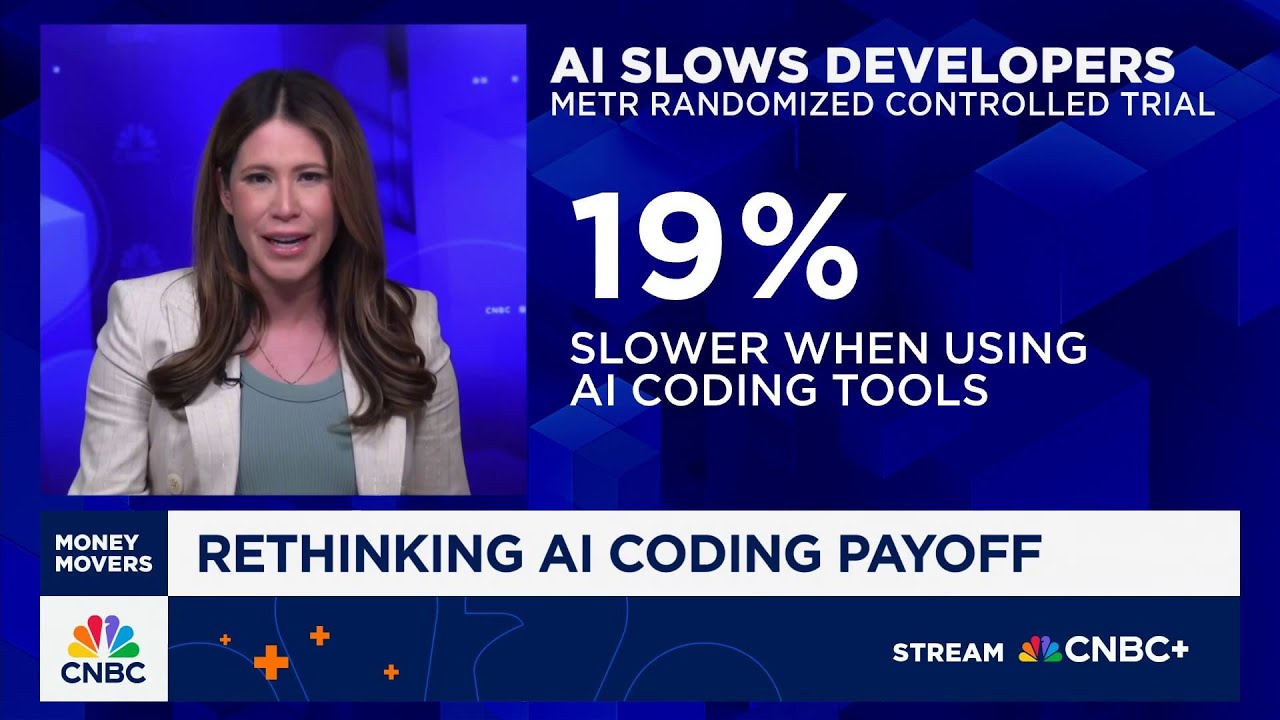Recent research reveals that AI coding assistants may slow down experienced engineers by requiring extensive corrections, challenging the optimistic view that AI dramatically boosts productivity across enterprises. While junior engineers benefit from AI tools for simpler tasks, senior engineers remain essential for debugging and refining code, leading to increased reliance on top talent and a more complex impact of AI adoption on the engineering workforce.
The video discusses recent research that challenges the optimistic view of AI tools significantly boosting productivity in coding. A study by Meta, an AI research nonprofit, found that experienced engineers were actually 19% slower when using AI coding assistants like Cursor. Instead of speeding up their work, these tools often provided suggestions that appeared helpful but required time-consuming corrections. This finding contradicts the common Wall Street narrative that AI will dramatically enhance white-collar productivity across enterprises.
The research highlights a nuanced impact of AI on different experience levels among engineers. While junior engineers benefit more straightforwardly from AI tools, especially for simpler and well-defined tasks, senior engineers still play a crucial role in debugging, refining, and finalizing code. This dynamic may increase reliance on senior talent rather than reduce it, which helps explain why companies like Meta are offering massive salaries to top AI engineers amid ongoing talent wars.
Broader data on AI adoption in enterprises also shows signs of stalling. According to Ramp, a platform tracking enterprise software spending, paid AI tool usage plateaued at around 40% after rapid growth over the past year. In sectors leading AI adoption, such as tech and finance, there was even a slight decline. Companies are experimenting with AI tools but are increasingly questioning their value as the initial excitement wears off, despite the fact that AI coding is already embedded in major tech firms like Google and Meta, where about half of the code is AI-generated.
The conversation also touches on the feedback loop between engineers and AI tools. Senior engineers’ efforts to debug and refine AI-generated code provide valuable feedback that can help improve the AI models over time. This iterative process may lead to better performance in the future, potentially moving toward the goal of artificial general intelligence (AGI), where AI could handle nearly all coding tasks independently.
Finally, the video emphasizes the different ways AI tools impact engineers at various career stages. Junior engineers may be more open to adopting AI tools, which can help them level up, but they might also accept imperfect code that creates more work for senior engineers later. Senior engineers, deeply familiar with the codebase, spend significant time verifying AI suggestions. This dynamic suggests that the middle tier of engineers might face the most pressure, as AI tools reshape workflows and productivity expectations across the industry.
